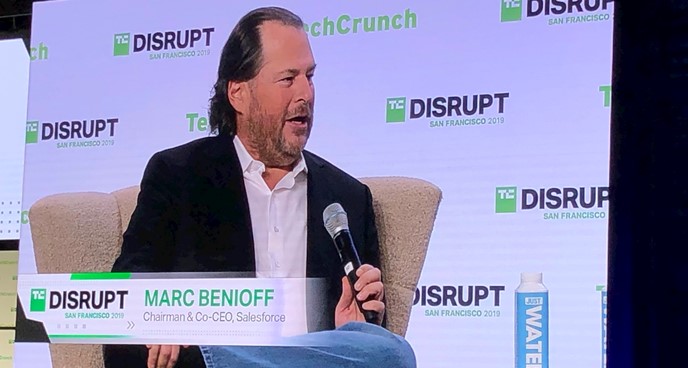In an October 2020 report, the House of Representatives condemned big-name companies like Amazon, Apple, Facebook, and Google. These lawmakers had investigated the practices of the world’s largest technology companies for the past 16 months and ultimately decided that these start-ups had turned into “the kind of monopolies we saw in the era of oil barons and railroad tycoons.”
The House was clear; these companies were abusing the dominant positions they had by setting prices and rules of commerce, search, advertising, social networking, and publishing. They recommend that competition is restored by breaking up the companies altogether.
This isn’t all that different than what Salesforce CEO Marc Benioff stated back in October 2019 in a New York Times opinion piece. He noted that companies like these were threatening to capitalism altogether and that the tech world has been fighting against the monopoly that Microsoft has for decades.
His solution? Establishing a new kind of capitalism. Here’s what that would look like.
Why the “old” capitalism is dead
The capitalism we know today has led to massive inequality because it only cares about maximizing profits for shareholders. In his piece, Benioff points out that the 26 richest people on the planet have as much wealth as the poorest 3.8 billion.
In the United States specifically, income inequality is at its peak in the last 50 years. With the global health crisis of COVID-19 upon us, we’ve seen just how few Americans can pay for a $400 emergency. While billionaires like Amazon CEO Jeff Bezos have profited off the pandemic, most Americans are struggling to make ends meet.
Benioff advocates for a new kind of capitalism, one that is more fair, equitable, and sustainable. It says it should value all shareholders and stakeholders. The businesses that exist shouldn’t just take from society but give back and have a positive impact as well.
What would “new” capitalism look like?
Benioff notes that one of the primary issues is that businesses only care about their stakeholders while completely disregarding their shareholders (employees, customers, and the planet). This simply isn’t sustainable. When your employees and customers prop your business up, you need to give back to them as well. Additionally, when the Earth is on the verge of a climate crisis, businesses should be required to take care of it as well.
Because giving back is currently an afterthought for most companies, we’re seeing them manipulate people. There is no commitment to trust and truth. To restore trust and capitalism, we must pull policy and regulatory levers to ensure that all companies and investors are responsible for the impact.
Final thoughts
The pandemic and reckoning with racial justice have further exposed the flaws of shareholder primacy. Now is the time to end this practice, and it’s at the root of so many of today’s societal and environmental challenges. To be successful moving forward, we must rethink how we see companies. Everyone has its part to pay!







